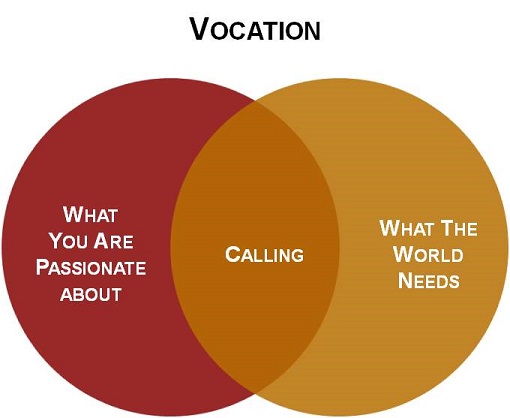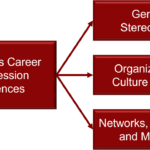
by admin | Jan 18, 2019 | Uncategorized
Bullying is a form of physical, psychological or verbal abuse. It involves one person or a group of persons picking on another individual or group of individuals. The bully is perceived as having more power over the person or group being bullied.
Physical bullying can include hitting, shoving, tripping, even sexual assault. Psychological bullying may include controlling the other through intimidation, ganging up, exclusion, gossiping or undermining a person's position or competencies.
Verbal bullying can include taunting, mocking, name calling, humiliating, inappropriate jokes, making negative comments, threatening or sending malicious e-mails or posting insults on social media. The latter is referred to as cyber bulling which can be much more intense and damaging psychologically, as it is very difficult to manage.
People who bully others may be covering up feelings of inadequacy or it may be a learned behaviour from a family where violent behaviour was acceptable.
Some adults may think bullying amongst children is just part of growing up and that it's a way for kids to learn to stand up for themselves. This is faulty thinking. Children who learn that they can get away with aggressive behaviour carry that belief into adulthood with a higher chance of being aggressive in relationships. Hence a bully may be your sibling, your partner, your supervisor or colleague.
Being bullied can have long-term physical and psychological consequences. Physical symptoms like headaches or stomach pain are common. And mental health issues like anxiety, depression, or panic attacks can occur from being bullied.
In my practice as a therapist and coach, I am shocked by the number of people whose ability to function at work has been significantly impaired as a result of bullying. Individuals with notable achievement records quite quickly can experience an erosion of confidence and diminished work performance as a result of bullying.
What's particularly perplexing is the inaction of senior leadership within organizations to address what appears to be a growing problem. Since research on leadership characteristics indicates that a bullying style is typically associated with an executive's failure, we are left with a conundrum.
Questions for Reflection/Discussion:
What is your experience of bullying?
What are you teaching or have already taught, your children about bullies and bullying?
Do you know where to get help if you are being bullied in your workplace or home?
Send me your comments. It's always great to hear from you.
And remember to take good care of yourself,
Kathleen

by admin | Mar 17, 2018 | Uncategorized
While traditionally the word vocation has been used to describe a person, typically male, being called by God to a particular role, it's now used in a secular context, along with words like work, profession, or occupation. This article explores the question What does vocation look like for today's woman?"
Based on the premise that each person brings unique gifts oriented toward a specific purpose, a reflection on one's vocation or calling can be considered by asking "How am I currently expressing meaning and purpose in my life?" "What changes, if any, might I wish to make?"
The inherent need to work is part of who we are as human beings. Work is psychologically necessary for healthy development. It influences a person's broader life experience, providing a way to enjoy a sense of belonging and contributing to a general belief that what we do is important. Work is also a social experience. In addition to providing an opportunity to experience satisfaction from task completion and, perhaps, significant accomplishments, work also affords opportunities for affiliation and meaningful relationships.
In Parker Palmer's book, Let Your Life Speak: Listening for the Voice of Vocation, he challenges the individual to listen to her life, to try to understand what it is truly about, because vocation is not an external goal to be pursued, but rather, an internal calling to do something with one's life based on the individual's true identity and the values held in her heart.
This fits a feminine vocation model with space to change and choose based on one's authentic self. It also supports the reality of women's careers as non-linear, with transition or change often prompted by values and stage of life.
The satisfaction that comes from experiencing a meaningful career in both paid and unpaid roles increases significantly when we are able to live out our life's purpose through our work. A life lived on purpose is healthy from all perspectives: psychologically, spiritually, socially, and physically. When we are purposefully engaged in a freely chosen vocation, we are authentically present and feel fully alive.
Reflection/Discussion Questions:
- What is it that you wish to accomplish in your lifetime and why do you feel compelled to do it?
- What is the difference between being driven to accomplish and being called to complete?
- What do you think lies ahead in the next stage of your life?

by admin | Aug 8, 2017 | Uncategorized
Every adult moves through several important and predictable stages in their career-life journey, with the ending of one stage and the beginning of the next involving a period of adjustment.
In his well-known book Transitions, William Bridges explains that transitions involve 1) an ending, followed by 2) a period of confusion and distress, leading to 3) a new beginning. He warns us that the transition process can take its' "toll on us physically as well as mentally and socially."
Current adult stages are believed to be young adults (22-34), early middle age (35-44), late middle age (45-64), young-old (65-75), middle-old (76-85) and frail old (86+). A career-life transition can take place at any one of these stages, including late stages since people are living to advanced ages and often working in paid roles into their 70's and 80's.
The factors listed below can impact the experience and outcome of a career-life transition. Use the questions to help support and inform your transition process.
Timing/Readiness: Does the change fit with your stage of life? Does the change involve embarking on a whole new life chapter, e.g. adolescence to adulthood, entering late middle age, or middle-old age? Are you ready for the change, or does it feel forced or premature? What do you need to do to prepare yourself for what lies ahead? What might you need to let go of? What supports do you have in place to ease you through the transition?
Imposed or Self-Selected: Is the change your idea, or has someone or something influenced or forced the transition you face? This could include termination of employment, the sudden ending of a relationship through divorce, death or illness. You need to have resources in place whether you have chosen to engage in something new or it's been forced upon you.
Role Adjustment: Roles include behavioural expectations created by ourselves and/or by others. When we leave one life stage and enter another, there are always role adjustments. In the new role, the expectations may be inflated, imposed or unrealistic. The loss of the previous role may create emotional distress. Working through that distress until the new role "fits" is critical. And perhaps most importantly the time required can vary a great deal, depending on the individual.
Establishing A New Identity: This can take a fair bit of time, depending on the amount of "reinvention" that's required. So much of our identity is defined by how we earn a living. Trying out new roles on a small scale, e.g. taking a part-time job in the field, or volunteering can allow one to adjust to the new identity. Changing work identity involves learning to think about oneself differently. In my own journey, after launching a private practice in career counselling, it took me nearly five years to refer to myself as a psychotherapist.
Building New Relationships: Leaving old friends/colleagues behind and joining a new group can be a difficult adjustment. Entering college or university is one example. Changing occupational fields is another, or getting married and moving to a new community, city or country. Adjusting to retirement can be highly distressing for some people. Any of these changes may involve the loss of some relationships and require the building and maintaining of new ones.The mental and social toll can be significant depending on your personality and the support systems you have in place.
In my own career journey, one of the most difficult transitions I experienced was from my first career in the secretarial field to that of full-time wife and parent. The ending of the paid work role was not difficult, as the planned birth of our first child totally trumped my previous career choice! All my life I had imagined the joy of becoming a parent and that part definitely did not disappoint me. What I could not have known was the reality of how much the homemaking role is under valued in our culture. Nor could I have ever imagined the negative impact on my psychological health of being in a role without value: strong feelings of being invisible and worthless as a "stay at home mom."
I invite you to make a list of the number of career transitions you've had in your life thus far. Use some of the questions in this article as the basis for your self-assessment and reflection.
Consider this tiny piece of wisdom – ask for and accept the support you need to help you move forward. Career transitions are so much better when they're not navigated alone.
Take good care of yourself,
Kathleen
www.kathleenjohnston.com
Career Strategist
780-752-4015

by admin | May 13, 2017 | Uncategorized
This article is a personal reflection on my career journey that I hope will inspire others to know their truth.
I'm very aware of having been driven by a sense of inadequacy, more than any other factor, throughout the whole of my adult life. My parents were born in 1903, old enough to be my grandparents when I was born. Their values and belief systems were a reflection of the current times and of a traditional farm family where men were valued more than women, due in part to their ability to contribute as a physical labourer. My parents had four sons for which my father was very proud. They also had four daughters but they were not esteemed in the same way.
Women’s work—child-rearing, gardening, canning, cooking, cleaning, and general household management was necessary, but not valued nearly as much as men’s work. Because I am a woman of that time and context, I've overcompensated for this innate sense of inferiority by adhering to a ridiculous work ethic my whole life, trying in vain to prove my worth.
My parents valued intellect and educational achievement regardless of gender, encouraging all of us to graduate from high school – the norm for the time. My brothers were expected to be able to earn a decent living; one that could support a wife and family. The girls were expected to marry well—preferably “a good provider," in my mother’s words.
There was little expectation that any of the daughters would have any job role other than that of unpaid wife and mother. I had dreams of attending university but there was no money to support post-secondary education and student loans didn’t exist. I also suspect, that in my parents’ hearts, it would have been deemed a waste to educate a woman.
So I was sent off to Alberta to live with my older sister and her family and take a secretarial course. My mother thought that would help me get a job and then I could work until I "got married and had a family." My younger sister went to nursing school, which involved minimal cost; and room and board were provided. I’ve always thought she was so fortunate to have been able to do that.
I dutifully followed my mother’s advice; finished secretarial training, got a job, found myself a responsible man, got married and had two kids (sons of course). And just like thousands of other women of my time, I became a "stay at home" mom.
Then a shocking thing happened to me shortly after the birth of my second son. I discovered the unpaid duties of being a wife and mother were not enough to keep my drive for achievement at bay. I had an enormous yearning for something else, but suffered in silence with a rather strange and unspeakable sense of dissatisfaction.
The suffering included considerable guilt because my husband provided well, I had a lovely home and two healthy sons. The roles of wife and mother were supposed to be the ultimate fulfillment for a woman—the fact that they were not, surely meant there had to be something wrong with me!
It would take a serious downward spiral into depression, entry into a feminist network, and several years of consciousness-raising, before I would understand what Betty Friedan, in the 1960’s called, the “problem that has no name.”
The journey of becoming Superwoman had commenced! This was the early 1970’s; my children were toddlers, and the women’s movement was well underway.
After five and a half years of juggling full-time mothering, household management, community volunteering and by this time, the supervision of 20 part-time staff in a paid part-time job at the YWCA, I decided to take a break.
The truth was that the YW work was not going to move me toward my dream. What I really wanted to do was complete a university degree. I was determined to prove that I was a woman with intelligence, skills, and abilities; more than “just a housewife” or “just a secretary.”
For as long as I could remember I had wanted to have a job that in my mind was “professional.” I dreamed of doing some kind of work that helped people in some unknown but profound way. It was a dream that I kept tucked away in my mind and it would take many years to become a reality.
In the spring of 1981, we moved to Edmonton. The possibility of attending university began to emerge. My children were in school all day. We lived just south of the university. I applied to the University of Alberta based on my high school marks that were now twenty years old and was accepted. I was thrilled. I started by taking one course in English, and then gradually became confident enough to take three courses each semester.
I was fortunate that my course schedule allowed me to be home when my kids got home from school. The unhealthy guilt so often connected to the role of mothering was also a driver for me. My sons were aged 12 and 10 when I started. It took me 5 ½ years to complete a four-year degree.
After graduation, I secured a job as a Program Director with the YMCA of Edmonton. The culture of the ‘Y’ provided a nurturing environment for someone like me, looking for every opportunity to prove my competence.
The YMCA is a male-dominated hierarchical, competitive environment. My farm family background had taught me how to work at a self-sacrificial level, take on any challenge, and never, ever complain.
After one year, I was offered the position of Centre Manager. It was to fill a maternity leave for four months. When I inquired about who would take my program director position, I was assured by the CEO that I could manage both jobs. And I did just that.
The next promotion was to General Manager, with responsibility for the strategic positioning of the YMCA’s employment and education services for at-risk youth and their families. This was followed by a promotion to Vice-President, adding the association’s childcare operations to my portfolio.
I became an expert on employment and education programming for at risk populations within the YMCA national movement. The opportunities were everywhere – completely hooking my drive for proving my self-worth. When I started with the ‘Y’ we were offering five programs for the unemployed, serving about 500 yearly; when I left 13 years later, we were serving nearly 8,000 people a year.
I will never regret the time I spent with the organization—it was an amazing experience. However, when I look back at being immersed in the ‘Y’ culture, whose foundation and history is hard work and community service—I realize how out of touch I had become with any sense of balance in my life.
My paid work had become my only definition for myself. My need to achieve, to be seen as competent, to feel worthwhile as a human being, had driven me to the edge of burnout.
I had totally immersed myself in an environment that thrived on my becoming a workaholic. It was as though I had given up my soul for the prestige of being part of a system with good work that never ends.
It was an enormously difficult decision, but I chose to leave my paid work role to become a full time student. I embarked on a completely new career adventure in pursuit of my dream.
I believe meaningful work plays a significant role in our lives. It's been described as a basic human need and that it must be “understood as an end in itself and not just as a means to get something else” (Soelle & Cloyes).
In my desperate need to eliminate feelings of inadequacy, I had used “work” as my only means for self-identity and self-worth. I realize now from my achievement pursuits that being able to do good work, to make a contribution, and to have a sense of purpose, will always be essential ingredients for my overall sense of well being.
I’ve also learned that what I accomplish cannot only be measured externally. An internal measure for what's really important comes from trusting my inner wisdom; my own feminine truth. Stability, wellness and a balanced feeling comes when individuals stay connected to their inner knowing—integrating their values, beliefs, attitudes and behavior consciously and deliberately into all facets of their lives.
My personal journey stimulates a vision for all women – that they have every opportunity to live and work to their fullest potential and never at the expense of their health.
Take good care of yourself,
Kathleen

by admin | Sep 17, 2013 | Uncategorized
"We are best motivated for work not by being pushed into it or by outside compensation but by inner desire." Matthew Fox, author of The Reinvention of Work.
To be dynamic means to be characterized by continuous change or vigorous activity, high effectiveness, and having energy or force. In the 21st century managing your career as a dynamic process is essential for success and fulfillment.
In today's work world it's becoming less and less likely for anyone to expect to launch a career with one organization, to count on being there for many years, and to experience continuous advancement through the ranks to a leadership role.
Current career statistics indicate that the average person will change his/her career 5 to 7 times in a lifetime. Furthermore, as the technological era continues to create a vast variety of career choices, predictions are that about 1/3 of the total workforce could change jobs every year.
Employees, particularly younger generations, no longer expect nor want to work for one employer for years. What they do expect is the opportunity for learning and development, challenging work with ongoing skill acquisition and good leadership. When these things are not forthcoming they are apt to move on. Research tells us the main reasons people choose to leave a job are 1) they don't like their supervisor, 2) they no longer like or enjoy the work, and 3) there's limited opportunity for career growth.
The new reality of constant change in the world of work can create excitement for people who crave action and variety, or considerable angst for those who need more certainty and predictability in their lives. Regardless of these preferences, and based on the reality that change is part of life's process, it can be a significant advantage to learn how to strategically manage your career path.
The following diagram shows the strategic nature of career planning for 21st century careers. All factors must be considered and monitored in order to support consistentcareer satisfaction and well-being. Understanding oneself, the world of work and the various outside influences contributes to the steps identified in the outer circle which represents a process that can be repeated as one moves through life transtitions or stages. 
The ultimate goal is to be able to look back on a life well lived and a career that allowed one to make a contribution through truly meaningful work.
Take good care of yourself,
Kathleen

by admin | Jun 26, 2013 | Uncategorized
"Our lives are shaped as profoundly by personality as by gender or race."
Susan Cain author of Quiet
The persistent fact that 60% of people are dissatisfied with their job has several contributing factors, with the most significant a poor fit between occupational choice and personality. In the book Do What You Are, the authors tell us that the right job becomes personally fulfilling when it nourishes the most important aspects of our personality.
Knowing our natural abilities, motivators, interests and values has long been an important consideration related to career choice. On the other hand taking the time to assess and fully understand how personality might impact our career can feel a little self indulgent. But when we find ourselves facing a significant career dilemma, with few ideas for how to resolve it, understanding our personality preferences is a great place to start.
Most of us probably began our career journeys with little thought given to personal traits or what might bring us joy as unique individuals. Initial career choices are often made based on the subjects we find easiest in school, what our parents or others think is best for us, or the pressure to become financially self-sufficient as fast as possible. In fact working at an "okay job" for a period of time can be an effective way to become oriented to the world of work.
But to achieve real and lasting career satisfaction individuals first need to thoroughly understand personal preferences and then determine the kind of work that would be most meaningful.
Here's what we need to know about our personality to improve our career choice,and to find a work environment in which we are more likely to thrive.
* our energy orientation – what drains or invigorates us
* how we gather and process information
* how we prefer to make decisions
* how we form conclusions
* how we respond to, mitigate and manage stress
* how we take action
* how we adapt to change
* how we manage conflict
* our personal sensitivity levels
When the above items are understood and accepted, you can then intentionally create strategies for managing the people and the situations you encounter in your daily life and work. The result can be a marked increase in your career success and satisfaction.
There are several excellent personality tools available. The Myers Briggs Type Inventory (MBTI) is regarded as a leading assessment for career planning. One source for the MBTI is the Kiersey Temperament Sorter-II available online – simply google the name. The initial assessment is free and provides you with your MBTI 4-letter type.
Work is far more likely to feel satisfying when we acknowledge and apply our personality preferences.
Take good care of yourself,
Kathleen

by admin | Mar 17, 2013 | Uncategorized
"She felt that old generic guilt, the kind you feel even when you can't think of what in the world you are supposed to have done." Meg Wolitzer
Guilt is the experience of a person thinking or feeling that she has done somethingshe should not have, or has not done something she should have. Either way,the person experiencing this emotion takes responsibility for the circumstance.
Guilt can be healthy, for example, when we feel bad afer behaving inappropriately or dishonestly. This healthy guilt can increase self-awareness, teach an important lesson, or help resolve problems. It can even improve our personal leadership skills and our relationships, and can thus be an advantage from a career perspective.
On the other hand, when a person expects the impossible of herself, or is constantly devalued and feels flawed or unworthy, the result is unhealthy guilt. Unhealthy guilt may be expressed in behaviours like taking on more than one can reasonably accomplish, being a compulsive helper, continually apologizing for oneself, being reluctant to say "No," or struggling to ask for help.
Women tend to experience guilty feelings more than men, partly due to the fact that women are unlike men emotionally. Some people believe that women's brains are wired differently, as they tend to be more highly sensitized to emotions. This can lead to a stronger reaction, perhaps to an overfunctioning response to situations that are emotionally charged. Another reason women may feel guilt more readily is because they have been socialized to see to the needs of others first and, as part of that reality, to unconsciously accept responsibility for situations that may not always be within their control.
Unhealthy guilt is an emotional response and therefore does not respond well to reason. Left untended, it contributes to anxiety, depression, stress overload, and in the extreme can lead to burnout. From a psychological perspective, extreme guilt may be connected to an unhealthy ego and low self-esteem, both of which can be enhanced through supportive therapy. Other interventions include identifying the top priorities in your current life stage and creating a personal system for dictating what you will and won't do, based on your priorities. This system can be evaluated in six month time frames, creating reasonable structure and a sense of control.
Woman blamed for the fall of mankind in the story of Adam and Eve was the beginning of the female gender being held accountable for the behavior of others. In her book Women's Reality, Anne Wilson Schaef calls this "the sin of being born female," and makes the case for the many ways in which women continue to pay the price for this perhaps unconscious, but deeply held belief continuing to exist in today's modern world.
As women, we must consciously and with intention, work hard to free ourselves from unhealthy guilt. This begins as we use our feminine wisdom to recognize whenever it is being imposed and whenever we are accepting it as part of being female. In either case, we can exercise the power to believe in our own sacred truth and through that truth choose our response.
Take good care of yourself,
Kathleen

by admin | Nov 6, 2012 | Uncategorized
“The meeting of two personalities is like the contact of two chemical substances: if there is any reaction, both are transformed.” ― C.G. Jung
We human beings are social animals with an innate drive for being in relationship with others. Consider societies' use of banning, shunning, or isolation as punishment,or even "time out" for kids to understand how important relationships are to our well-being. Fortunately, most of us have the opportunity to be in meaningful relationships every day in our families, workplaces, schools and communities.
Picture a nest of circles each moving further and further away from the one in the centre. These circles represent the relationship "systems" in which we function, beginning with the SELF in the inner most circle. The next circle contains personal and intimate relationships like family, close friends or neighbors. Relationships within these innermost systems are vital to our well-being. As the circles move outward, each one will contain less intimate relationships, such as workplaces,education systems or institutions; yet these relationships too can have both positive and negative effects on our well-being.
When each of our important relationships are reciprocal, strong and harmonius, our daily lives move along without too much distress. But feelings of peace and contentment quickly evaporate when disappointment or conflict emerges in one or more of these relationships.
A robust relationship means that it is full of health and strength; it's vigorous and can withstand the storms and upsets of life. We know that robust relationships don't just happen. Individuals must learn to become competent at initiating, developing and maintaining them. Consider the following competencies for helping to ensure that strong relationships exist in your life.
1. Having Clear Expectations for Self and Other
When we become involved with other people, we hold expectations related to shared values, interests, commitment, attitude, behavior and so on. When these expectations,which are held by both parties, are unrealistic or unfulfilled, the risk is disappointment and distress and, in the extreme, may even end the relationship. A good strategy is to be very clear about what we expect from each of our relationships, both from ourselves and from the other. This approach is of equal importance to personal,family, social and work relationships. Transparency, trust, integrity and openness are key factors in ensuring that what is wanted and needed by each individual can be shared, negotiated and met. Relationships change over time so occasionally revisting expectations can be a helpful exercise.
2. Accepting Personal Responsibility
Exercising personal responsibility means accepting the authority one has for directing a successful outcome. A person with a well-developed sense of responsibility recognizes that her actions have a direct impact on anyone with whom she is in relationship.Accepting personal responsibility means each choice is thoughtful and intended to earn trust. It means consistently doing what I said I'd do and when I cannot, renegotiating the required outcome in a timely manner. A responsible person does not put another person's well-being at risk for her own benefit, doesn't threaten nor try to control any of her relationships. It's easy to see how demonstrating this competency could
be an advantage in each one of our relationship circles.
3. Holding a Realistic Sense of Self
This can be complicated because of the fact that much of what motivates and drives us is largely unconscious. Considering this ego-driven reality, it's not surprising how often we're unaware of why we acted the way we did. Most of us have "blind spots" – things outside of our awareness until someone points them out. This requires the courage to ask for feedback even when we know it may result in a request for a behaviour change. It means we're willing to hold a mirror up on a regular basis and deeply examine the self-reflection. Having a realistic sense of self requires a clear understanding of one's personality, emotions, values, attitude and behaviour. Self-awareness is evident when there is no deception; the person operates from her genuine self, not from the place of someone she wishes to be. This competency allows for the freedom to be exactly who you are within each of your relationships.
4. Establishing And Maintaining Personal/Professional Boundaries
Our boundaries are what define us as being separate from another. Our skin denotes the boundary ofour physical being, however, we also have invisible boundaries – emotional, sexual, spiritual and relational. They exist and affect us. Therefore,we need to become conscious of them in order to communicate our limits to others.Relational boundaries define the relationship, and every relationship, even intimate ones, have limitations about what's appropriate. Our boundary limitations inform us about when and where to draw the line. When we're afraid to draw the line we risk being victimized or subservient. Fear, guilt, insecurity, or an overabundance of obligation can get in the way of drawing the line. Becoming firm about boundaries is enhanced when we emphasize the values that guide our lives. Core values such as respect, honesty, trust, kindness, tact and tolerance can ach act as a boundary builder. Skill development for this competency may include assertiveness or conflict resolution courses, or personal development through coaching or counselling.
If you're interested in understanding your attachment style in close relationships,go to the Authentic Happiness website and complete the Close Relationships Questionnaire:
[http://www.authentichappiness.sas.upenn.edu/default.aspx]
Take good care of yourself,
Kathleen

by admin | Oct 1, 2012 | Uncategorized
"Presence is a state of inner spaciousness." Eckhart Tolle
________________________________________________________________________
What is Personal Presence?
Personal presence is often thought of as charisma, a level of magnetism or charm and is typically assigned to powerful personalities. Another way to think about personal presence, however, is in the context of a virtue represented by seriousness, dignity, and a certain depth of personality.
In this article I invite you to consider personal presence as involving four important dimensions of the Self – Physical, Intellectual, Emotional and Spiritual, and in a context that brings the whole Self, with worthy intention into each situation.
Why Does Personal Presence Matter?
When we are fully present, it can draw the attention of, or be sustaining to others.For example the impact of personal presence as a critical factor in the support and care of people who are ill, grieving or in crisis, has been well documented. Most of us have had life experiences where the presence of another was profound and meaningful, even healing; we cherish those experiences.
In the world of work, personal presence is being proposed as a requisite for people seeking leadership roles. Commencing with the recruitment process through to performance reviews, having a stronger presence can indicate you're the kind of person others want to work with, be around or invest in.
Other circumstances where personal presence matters may include discussing a promotional opportunity, negotiating with a customer or client, joining a volunteer board or committee, settling the terms of a relationship, talking over a disagreement with your child – the list may be endless.
When we are fully present we are attentive and receptive to the environment around us, we're able to "tune into" what's happening. A colleague I worked with some time ago used to say "when you're in the room, BE in the room!" Many of us have an "authenticity gauge" for when people are in the room in a way that doesn't feel genuine, or not in the room at all. The result is an opposing force for the development of meaningful relationships and outcomes.
Not only does personal presence matter, it is a choice, and it is always within our control to be intentional about how we show up.
Exploring Personal Presence from Four Self-Dimensions
1. Physical Dimension
Our physical presence is what others can see about us. It is the image we portray. This includes our physique, how we dress and groom ourselves, how we walk, enter a room, stand, gesture and in general, take up space.
There is an abundance of literature about how various physical attributes have influenced career decisions over time. Some common examples: tall, handsome men with hair get promoted, overweight and obese people are stereotyped as unproductive or lazy, short, small women struggle to be seen or heard in meetings, and so on.
Whenever we meet another person our senses take in information about them – their physical appearance, how their voice sounds, how they smell, the words they use, and the gestures they make. We use that information to form an impression and we make a preliminary decision about them – positive, negative or indifferent.
Considering that each of us has the power to intentionally choose the image we want to project, and supposing that we can do that for any circumstance we face, think of the times when the projection of your physical presence mattered most and what,if anything you might have wanted to be different.
What is the impression being left by your Physical Presence?
2. Intellectual Dimension
Your intellectual self is demonstrated by how you think, problem solve, understand and communicate. The words you choose when you talk and write, the way in which you deliver and accept ideas, your level of transparency, all demonstrate personal presence from your intellectual self-dimension. How you seek and share knowledge also represents your intellectual self. Your intellectual presence can be enhanced by responding appropriately in the situation, asking meaningful questions, and encouraging others to participate.
Consider how you present your Intellectual Self?
3. Emotional Dimension
Being able to regulate mood, persevere when times are tough, manage indulgences, display empathy, and generate hope, all demonstrate emotional intelligence (EmotionalIntelligence by Daniel Goleman, 1994). We are emotionally present when we are aware of feelings, both our own and those of others, and when we are able to acknowledge those feelings. Acknowledgement can take place through actions, words and on occasion,silence. Our emotional presence is also demonstrated through interpersonal skills,ability to socialize, cooperate, network and collaborate.
If you want to know your Emotional Intelligence Quotient you can visitwww.myskillsprofile.com
4. Spiritual Dimension
Exploring personal presence from a spiritual dimension is not about examining religious beliefs, but rather it's about discovering the essence of ourselves. I concur with Tanis Helliwell that as humans we have both a soul and a personality, with the soul's essence as being and the personality's as doing. "Our personality is a construct we use to experience the world, but it is not the essential part of us." (Take Your Soul to Work, by Tanis Helliwell. 1999, p.26). Using this premise we can begin to examine our Spiritual self-dimension by considering whether there are differences between the Ideal Self and the Real Self we present to the world. Here are some questions to help you examine that idea:
- What is the vision I hold for my life?
- How do I demonstrate my values and the principles that guide my life?
- How do I maintain positivity in my life and my relationships?
- How do I inspire hope, in myself and in others?
- How do I demonstrate character, civility, concern, congruence?
- How often do cynicism, negativity, or irritability undermine my spiritual presence?
Being intentional about our Essence or Spiritual Dimension increases the probability that it is our Real Self who is in the room, in the situation, or sitting with the other.
How are you choosing to BE – Physically, Intellectually, Emotionally & Spiritually?
Take good care of yourself,
Kathleen

by admin | Jul 31, 2012 | Uncategorized
Ability may get you to the top but it takes character to keep you there." John Worden
~~~~~~~~~~~~~~~~~~~~~~~~~~~~~~~~~~~~~~~~~~~~~~~~~~~~~~~~~~~~~~~~~~~~~~~~
What is Character?
Character consists of the moral or ethical traits that form the individual nature of a person. An individual's character traits differ from their personal values, which are culture specific.
Linda Popov, author of The Family Virtues Guide and one of the founders of The Virtues Project, suggests that character consists of 52 Universal Virtues that exist in all of the world's faith traditions. They are soul qualities or spiritual principles that can be taught and are modeled through attitude and behavior.
Why Does Character Matter?
Throughout history people have written and spoken about the importance of character:
"Character cannot be developed in ease and quiet. Only through experience of trial and suffering can the soul be strengthened, vision cleared, ambition inspired and success achieved." ~ Helen Keller
"Character – the willingness to accept responsibility for one's own life – is the source from which self-respect springs." ~ Joan Didion, Novelist
"People grow through experience if they meet life honestly and courageously. This is how character is built." ~ Eleanor Roosevelt
From birth to death, character traits define one's potential for being in relationship with others and living a principled life. In The Family Virtues Guide, Popov explains how each of the 52 Virtues can be taught within families and demonstrated in behavioral terms to guide one's lived experience.
Character Traits As Career Enhancement
Using The Family Virtues Guide, here are a few character traits with potential for CAREER enhancement.
- Assertiveness: asking for what you want and need; but not at the expense of the other.
- Confidence: acting with strength; not allowing fear or doubt to prevent you from doing what you really want to do.
- Creativity: expressing new ideas; using the power of imagination to see old things in new ways.
- Detachment: choosing how to respond in each situation; feeling what you feel but not acting on the feeling unless you want to.
- Enthusiasm: being filled with a positive spirit; it is the way you go about doing something.
- Gentleness: moving wisely, touching softly, holding carefully, speaking quietly and thinking kindly.
- Honesty: being sincere, open, trustworthy and truthful; doing what you said you would do. Actions match words.
- Humility: Doing your best withoutattracing too much attention. Giving what you have to give, not to impress others, but just for the sake of giving.
- Love: Treating other people with care and respect.
- Moderation: Stopping before you go overboard. It is using self-discipline to keep from overdoing.
- Patience: Enduring a delay or troublesome situation without complaining. Sticking with something to finish it.
- Tact: Knowing what to say and what isbetter left unsaid. Thinking before you speak. Knowing when to stay silent.
Character Traits as Career Limitations:
There are also character traits, that as habits, have the potential to be career limiting. These are virtues that fit the cliche "too much of a good thing." Virtues with the potential to be career limiting include:
* Responsibility – Being responsible means being accountable for the results. However, when we take on more than our share of responsibility, we may be overfunctioning in our role and risk being perceived by others as controlling. At its' worst, being continuously overresponsible can lead to burnout.
* Self-discipline – Creating structure, order and efficiency in your life. Taken to the extreme, however, this virtue can become "over the top" behavior that seems excessive to others and can lead to conflict in individual relationships or within teams.
* Excellence – This is always about doing your very best. Since excellence is a desire for perfection, the risk comes when our personal standards are so high they require superhuman effort. Perfectionistic behavior can be extremely hard for others to tolerate or understand. Family relationships or team projects often suffer.
Discover Your Character Traits
If you'd like to know more about your personal character traits, the VIA Institute of Character offers a validated FREE psychological assessment at www.viacharacter.org This assessment takes 30-40 minutes to complete and provides you with 24 Character Strengths in order of priority.
For more information on The Virtues Project and how to bring character education into your life go to www.virtuesproject.com
Take good care of yourself,
Kathleen

by admin | Jun 28, 2012 | Uncategorized
"If you're always racing to the next moment, what happens to the one you're in." Anonymous
This article follows a recent early morning walk in the park by my home where beautiful rose bushes were in bloom all along the path. As a "workaholic on a healing journey," I have to remind myself regularly to stop and smell the roses.
While we live and work in a high speed, high tech, demanding and competitive world, I believe it's our choice whether or not we get caught up in that chaos. We can skip lunch, grab a greasy burger and fries, or we can eat nutritiously and go for a 20 minute walk. We can register our kids in 4 activities a week or limit that to two. We can fall into bed exhausted at night or we can carve out an hour a day just for "me" time.
I also believe that experiencing chronic stress has become a norm in our culture and that it's here to stay. One author recently referred to the phenomenon as culturally induced ADD. The first line of Rudyard Kipling's famous poem IF outlines the challenge I think we face as individuals: "If you can keep your head when all about you are losing theirs…"
If, like me, you have an ongoing struggle to change your ways, it may be motivating to consider the difference between acute and chronic stress. The Stress Response in humans evolved as an immediate (acute) instinctual reaction to being faced with a threat to our physical survival. Whether or not this threat is perceived or real,the brain automatically triggers the hypothalamus to flood our bodies with the stress hormones epinephrine (adrenalin) and cortisol, to provide the energy to avert the danger.
But as soon as the danger passes, the body also evolved to rest and recuperate,and this is exactly what our ancestors did. In our modern world, however, we activatethe Stress Response for very different reasons than physical survival,and allow too little time for rest and recuperation.
These days, the Stress Response is triggered mostly by psychological factors, thoughts,feelings or memories. In other words our body responds exactly the same when our loan doesn't go through, our boss gives us a poor performance review, or our teenager doesn't come home on time. Activating the Stress Response for these kinds of factors is not what the system evolved for, and thus becomes a chronic response to stress.
When the Stress Response is chronic, the body is forced to ignore the repair and growth functions it would normally be performing. Scientific research has shown that the build up of hormones in our body resulting from chronic stress, contribute to the development of life threatening illnesses like heart disease, diabetes, cancer and hypertension, to name just a few.
Since the havoc from chronic stress is inflicted over a long period of time, it can be hard to understand the risk. In my stress consulting practice, clients are regularly surprised by the results of a stress assessment, saying things like "I had no idea! I didn't think it was that bad." This is due in part to the fact that chronic stress has become such a way of life we're not aware of what's going on in our bodies. In addition, tolerance for stress differs from one person to another,with personality and temperament either alleviating or exacerbating the stressors.
There is an upside to this however, which is that we can manage the impact of chronic stress. This begins with paying attention to personal distress signals. They are highly individualized and can include muscle pain in the upper back, tension or migraine headaches, acid reflux, emotional outbursts, inability to think clearly etc. Take a minute to think about yours. Recognizing your unique signals and then immediately going into self-care mode is essential because by the time we get these
physical or emotional signals, we're already in stress overload.
And for longer term prevention, there are several well researched factors that are known to increase resiliencey to chronic stress. Some of them may seem like common sense, however, common sense is not so common.
1. Regular exercise to enhance muscle functioning, circulation and digestion and to calm the mind, e.g. 30 minutes of exercise daily which can be achieved in three 10 minute regimes or all at once – the effect is the same.
2. Eating nutritiously is essential for good health. It is also a critical factor in mitigating the effects of chronic stress.
3. Deep breathing and relaxation techniques reduce worry and restore physical and mental stamina which in turn diminish chronic stress.
4. A support network of family and friends is a proven protection for managing distress and maintaining resilience. Practice asking for and accepting help from others.
5. An optimistic attitude helps to meet life's challenges with confidence and is critical to well-being. It takes three times as much energy to think negative versus
positive thoughts.
6. Hobbies can be distracting and help remind us about what's really important in life. Remembering the things we loved to do as a child can be a place to start.
7. Ability to deal with emotions helps us recover from stressful events. Knowing how to calm and soothe oneself when anger, sadness, confusion or fear are present is important.
8. Knowledge and preparation are key stress management factors. The more we know about the situation, including how long it might last and what to expect, the easier it is to cope.
I hope this information will help you meet the challenge of managing chronic stress and support your good health.
Take good care,
Kathleen

by admin | Mar 29, 2012 | Uncategorized
A career reputation is created over time as a result of attitude and behavior. Be intentional about yours!
~~~~~~~~~~~~~~~~~~~~~~~~~~~~~~~~~~~~~~~~~~~~~~~~~~~~~~~~~~~~~~~~~~~~~~~~
Reputation: It's Your Career Brand
Reputation is our identity in the opinion of others. In the business world, reputation is considered by many to be our most important asset, so shaping and developing how we wish to be perceived becomes a wise career strategy.
A reputation can be formed based on facts plus people's direct experience of being in relationship with you. It can also be formed as a loosely held opinion based on gossip and innuendo. The latter can be of considerable risk from a career perspective.
Knowing and controlling how you are perceived by others contributes to your ability to be strategic about your career success.
The concept of character is different from reputation, but the former can be an important influence, and provide an essential foundation for the latter. Individuals who live from strong core vaues also tend to build positive reputations. An honourable reputation can be developed through intentional and consistent, exemplary behavior,for example:
* Being respectful
* Being trustworthy
* Being genuine
* Being honest
* Being kind
Building a distinguished reputation may take the better part of your career-life, and yet it can be undermined, sometimes even destroyed, in a matter of minutes as a result of a bad decision or a thoughtless action.
What is your reputation? If you want an answer to that question, try polling a group of people who know you well, i.e. a group of selected friends, family, colleagues,subordinates, supervisors and clients or customers.
Ask each person to state the first two or three descriptors that come to mind when they think of you. Then examine all of the responses to find similar language or themes. These poll results should give you a good sense of how you are perceived by the people in your personal and professional life. If you hear anything that gives you cause for concern, ask that person's advice on actions you could take
to improve. This task takes courage and the willingness to receive feedback.
For further information on personal branding and career strategies, access this website Self-Marketing http://r20.rs6.net/tn.jsp?et=1109639205992&s=471&e=001z3ceenwhb2Qszp2dbi…
Take good care,
Kathleen

















